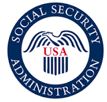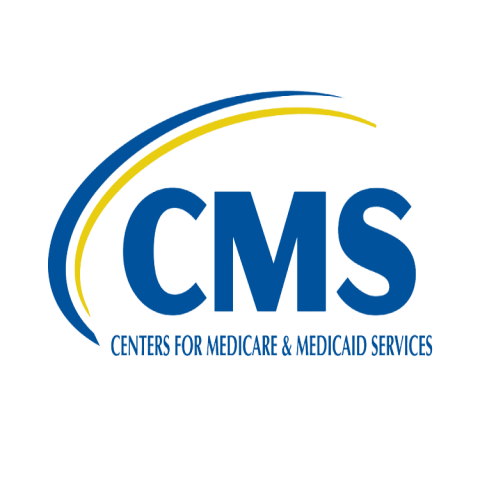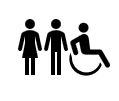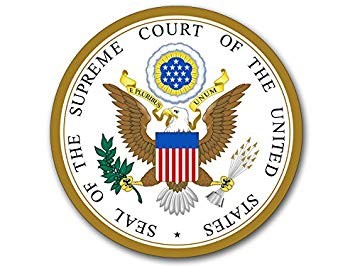|
 Social Security Social Security
The Social Security Administration wants to change its rules for people who get disability benefits, including Supplemental Security Income (SSI). Most people would have to prove their disability every two years. The proposed rule expands the use of continuing disability reviews (CDR). Currently, SSA reviews eligibility for Old Age Survivors and Disability Insurance (OASDI) and SSI benefits more or less frequently based on three different categories: every 6-18 months if medical improvement expected (MIE), every 3 years if medical improvement possible (MIP), and every 5-7 years if medical improvement not expected (MINE). The proposed rule adds a category called "medical improvement likely" (MIL) in which reviews must occur every two years and requires review for people in the MINE category every 6 years. They are accepting public comments until January 31.
Plain Language:
- New rules could change how often people with disabilities have to prove they need benefits. Social Security needs to hear from you.
What this means to you:
- If Social Security moves forward with this proposal more than two million people, often with significant disabilities impacting the ability to work full-time, will be at risk of losing benefits over the next ten years.
Action Step:
- Dear Social Security Commissioner Saul: I am writing about the proposed Social Security rule that would make most people getting disability benefits prove that they have disabilities every two years. I am very worried about the rule. It can be very hard to get disability benefits. For some people it takes years, and it is a stressful and time-consuming process. Disability reviews more often will create additional burdens for people with disabilities who cannot work and are struggling with income insecurity. This rule would hurt people with disabilities. Please do not go forward with this rule. Sincerely,
- Contact your members of Congress. Social Security has to follow the law when it issues the new rules. Congress can investigate whether the new rules fit with the law. Ask your members to look into the new rules.
 Aging Aging
The Senate Special Committee on Aging will hold a hearing this week on Wednesday, January 29th, on "That's Not the Government Calling: Protecting Seniors from the Social Security Impersonation Scam." The first panel will include Social Security Administration (SSA) Commissioner Andrew Saul. We expect there will be questions on SSA's proposed rule change on continuing disability review process.
Plain Language:
- A meeting is being held on Social Security in Congress this week.
What this means to you:
- Aging Committee members will have the opportunity to ask the Commissioner about the proposed rules in SSA and the impact on people with disabilities who are eligible for Social Security Income (SSI) and Social Security Disability Insurance (SSDI) and their families.
Action Steps:
- You can watch the hearing live.
- Contact your Committee members to let them know what questions you would like to see asked and thank them for holding a hearing on this topic.
 Healthcare Healthcare
The Supreme Court rejected a request to expedite review of a lawsuit threatening the Affordable Care Act. This decision was in response to a request from a coalition of 20 states led by California Attorney General Xavier Becerra for an expedited review of the Fifth Circuit Court of Appeals' ruling declaring the individual mandate in the ACA unconstitutional. The coalition contested the ruling, and was hoping for a review before the presidential election this November, arguing that the consequences of the case are too important and far-reaching to be decided by a lower court and over several months. The Supreme Court did not rule out considering the appeal to the Fifth Circuit Court's ruling at a later time.
Plain Language:
- A part of the Affordable Care Act that says everyone has to have healthcare is being questioned in the courts. The Supreme Court said it will not give an answer this year.
What this means to you:
- The Fifth Circuit Court's decision could still lead to millions of Americans losing their health care.
Action Steps:
 Medicaid Medicaid
Last week, the Center for Medicare & Medicaid Services (CMS) released a request for information (RFI) on coordinating care from out-of-state providers for Medicaid-eligible children with medically complex conditions. Through the RFI, CMS wants to:
- identify best practices for using out-of-state providers to provide care for children with medically complex conditions
- determine how care is coordinated for this population of children
- reduce barriers that prevent children from receiving care from out-of-state providers in a timely manner
- identify processes for screening and enrolling out-of-state providers, including streamlining such processes
CMS will use the information received to issue guidance to state Medicaid directors on the coordination of care from out-of-state providers for these children, which is required under the ACE Kids Act. Comment will be accepted for 60 days.
Plain Language:
- The government wants to hear from you how children with disabilities visit doctors not in the state they live in.
What this means to you:
- This is an opportunity for you to share your story on care coordination, research, and best practice.
Action Step:
 Voting Voting
Rep. Susan Wile (D-PA) introduced the Voters with Disabilities Bill of Rights (HR 806). It expresses the sense of the House of Representatives that Congress should enact the Voters with Disabilities Bill of Rights to fulfill the promises of the Americans With Disabilities Act and other civil rights laws which demand equal access to the ballot box for people with disabilities and to reaffirm and ensure that voters with disabilities have equal access to the ballot box.
Plain Language:
- This says that people with disabilities should have the ability to vote.
What this means to you:
- The disability community is a large voting block yet continue to have a low voting turnout rate because of access issues in the voting process and at polling stations.
Action steps:
 Home and Community Based Services Home and Community Based Services
Last week, Sens. Portman (R-OH) and Gillibrand (D-NY) introduced the Senate companion bill of the House's Isaiah Baker and Margie Harris-Austin Act (HR 5443), called Ensuring Access to Direct Support Professionals Act (S 3220). These would extend reimbursement of DSP services while a person receiving HCBS is in the hospital. This addresses a longstanding challenge in the 1915(c) Home and Community-Based Services (HCBS) waiver program that prevents individuals with disabilities and seniors who go to the hospital from bringing with them the Direct Support Professionals (DSPs) who know them best to provide them with the support they rely on. The legislation brings 1915(c) in line with other HCBS authorities by allowing payment for DSPs to provide personal assistance and other services when the individual they support has a short-term stay in an acute care hospital.
Plain language:
- This bill helps disabled people who have to be hospitalized to have a direct support professional there to provide supports they need.
What this means to you:
- This legislation will make a big difference in the lives of people with disabilities and seniors who rely on these services. DSPs and the people they support build relationships and familiarity that can play a crucial role in avoiding unnecessary trauma during hospital stays.
Action Step:
- Contact your members of Congress to sign on as co-sponsor: United States Capitol switchboard: (202) 224-3121.
The HCBS Advocacy Coalition, with support from the Community Living Policy Center and AUCD, released a white paper meant to assist states and stakeholders in tracking progress and outcomes from implementation of the Medicaid Home and Community Based (HCBS) Settings Rule. Issued in 2014, the Rule was designed to ensure that all people receiving HCBS have the full benefits of community living, including access to the broader community, choice and control over their daily lives, and opportunities for employment. States have until March 2022 to comply with the Rule, which if implemented well has the potential to improve the quality of Medicaid-funded HCBS systems at all levels: individual participants, providers, and state systems.
Plain Language:
- There is a new resource to help states and people with Home and Community Based Services (or HCBS) so people can live in the community.
What this means to you:
- These resources can help states and stakeholders track progress and measure outcomes as states are implementing the HCBS Settings Rule. This rule has the potential to make big change in the lives of people receiving HCBS services, as well as at the provider and state levels.
Action Steps:
 Education Education
Last week, the Supreme Court heard oral arguments in Espinoza v. Montana Department of Revenue. Montana's tax credit scholarship program allows a dollar-for-dollar tax credit for donations to an organization that provides private school scholarships. The state's supreme court ruled that the state constitution prohibited the use of these funds for religious schools. The petitioners assert that limiting the availability of scholarships to secular schools violates the First Amendment to the United States Constitution. The disability community has asked the Court to uphold the decision made by the Montana Supreme Court invalidating Montana's private school tax-credit scholarship program as it is harmful to students with disabilities.
Plain Language:
- The Supreme Court listened to both sides of an issue on using scholarship money for different kinds of schools.
What this means to you:
- While some argue that the program would help students with disabilities, school vouchers (which is a certificate of government funding for a student at a school chosen by the student or the student's parents) and tax-credit programs (which is reducing taxes if you take part in a government program) like Montana's actually hurt students with disabilities by redirecting public funds to private schools that are not held to the federal laws in place that protect the rights of students with disabilities.
Action Step:
- Read the Amicus Brief AUCD supported. (Amicus briefs are legal documents filed in court cases by interested members of the community. The briefs advise the court of important additional information or arguments that the court might wish to consider which can have significant impact on judicial decision-making.)
 Education Education
On January 15, twelve members of Congress sent a letter to Education Secretary Betsy Devos urging the Department of Education to update its 2016 guidance document on restraint and seclusion. Currently, the federal guidance discourages the use of restraint or seclusion except where a child's behavior poses imminent danger of serious physical harm to self or others. The lawmakers urge the DOE to prohibit seclusion and restraints and ask that the guidance promote the use of evidence-based alternatives that reduce use of physical restraint.
Plain Language:
- Members of Congress asked the Department of Education to end the use of restraint and seclusion in schools.
What this means to you:
- Increasing support for banning seclusion and restraint on students with disabilities will protect students from harmful, life-threatening practices.
Action Steps:
On January 21, Education Secretary Betsy DeVos announced the creation of a new Outreach, Prevention, Education, and Non-discrimination (OPEN) Center within the Office of Civil Rights. This center is devoted to proactive compliance efforts, including through technical assistance. The OPEN Center will provide assistance and support to schools, educators, families, and students to ensure better awareness of the requirements and protections of federal non-discrimination laws. The OPEN Center will be staffed by OCR civil rights attorneys and will be led by Acting Director, Christian Corrigan.
Plain Language:
- The government made a new office to help states and schools follow laws.
What this means to you:
- This center supports strengthening civil rights compliance including laws impacting students with disabilities through proactive measures.
Action Step:
 Disability Policy Seminar Disability Policy Seminar
Registration is now open for the Disability Policy Seminar and the AUCD Emerging Leaders Policy Forum. Learn more information about the events.
You do need to register for both events if you plan to attend the Sunday AUCD Policy Forum before DPS.
AUCD Policy Talk
How does the work that you do connect to policy? Check out #AUCDPolicyTalk about LEND policy education in action from UC Davis LEND! Connect with AUCD's policy team to engage with policy today!
Action Steps:
 Love Policy? We do too! Love Policy? We do too!
Check out AUCD's new policy resource, a one-page fact sheet to help explain AUCD's policy efforts, and engage with us today!
|
